Transport and Communication Class 5 Notes SST
| Table of contents |

|
| What is Transportation? |

|
| Modes of Transport |

|
| 1. Roadways |

|
| 2. Railways |

|
| 3. Waterways |

|
| 4. Airways |

|
| What is Communication? |

|
What is Transportation?
Transportation is the way people and things move from one location to another. Throughout history, humans have found various methods to travel and transport goods. Initially, people walked on foot, but with the invention of the wheel, carts were developed to make travel and carrying goods easier.
Later, in the eighteenth century, James Watt created a powerful steam engine, which greatly improved transportation. Then, in the early twentieth century, the Wright Brothers introduced an early form of the airplane, which revolutionized travel. These inventions have had a significant impact on the way we move and transport goods.
The Need for Transport
Every country requires a good way to move things around. It's not just about getting people from one spot to another; we also need to move raw materials to factories and then take finished products from factories to markets worldwide. This can only happen if we have a transport system that works well and doesn't cost too much.
Modes of Transport
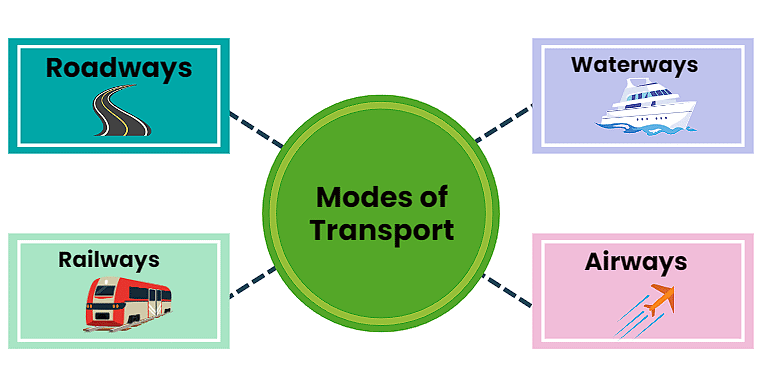
1. Roadways

Roads make it easier and faster for vehicles to move. In India, many roads, including big ones called national highways and state highways. These roads also connect India to its neighboring countries. For instance, there's a road called the Grand Trunk Road that goes from Kolkata in India to Peshawar in Pakistan. Other countries also have lots of roads. In places like Europe and North America, they have special roads called expressways or freeways. These roads connect towns, cities, and even different countries, making it quicker and simpler for people and goods to travel.
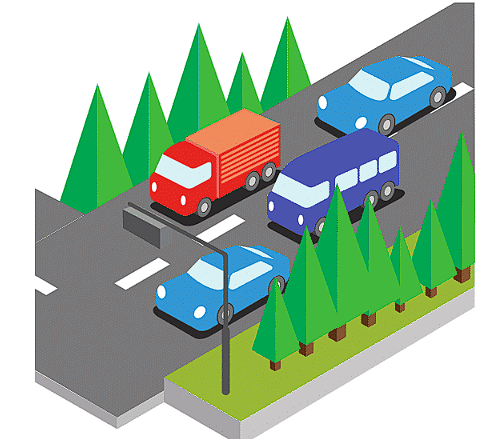 Road Transport
Road Transport
2. Railways
Railways are a great way for people to travel and for moving goods from one place to another. In India, the British introduced railways around the middle of the 19th century. Today, India has the second-largest railway network in Asia and the fourth largest in the world. The USA has the biggest railway network globally, and countries like Russia, China, and Canada also have many railways.
 Railways
Railways
The longest train journey in the world is on the Trans-Siberian railway in Russia. It goes from Moscow to Vladivostok, which is a distance of over 9,200 kilometers! The train takes about 178 hours to cover this long distance.
Some countries like Japan, China, and France have designed really fast trains. In Japan, they have the bullet train, in China, they have the Maglev, and in France, they have the TGV. These trains can go at speeds of over 400 kilometers per hour, which is super fast!
3. Waterways
Long ago, people used rafts and boats to travel over water. But as time passed, they built better ships that could carry more things and move faster. Water transport, like using ships, is cheaper than other ways of getting around. That's because you don't need roads or tracks like you do for cars and trains. You just need ports for loading and unloading goods. India has more than 200 ports along its coastline.
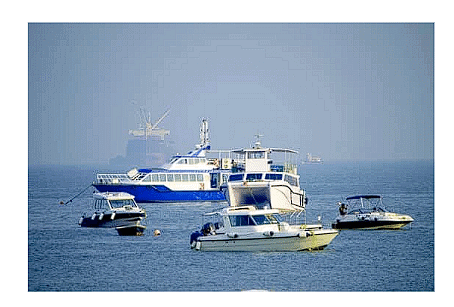 Waterways
Waterways
The busiest sea route in the world goes between eastern North America and western Europe. It's called the North Atlantic Route.
Two canals, the Suez Canal and the Panama Canal, have made travel quicker.
The Suez Canal connects the Mediterranean Sea and the Red Sea. This means ships from Asia can reach Europe without having to go all the way around Africa. The Panama Canal connects the Atlantic Ocean and the Pacific Ocean. Before it was built, ships had to sail around the tip of South America to get from one ocean to the other.
4. Airways
The first successful attempt to fly was made by the Wright Brothers (Orville and Wilbur) in 1903. Today, air transport has become a popular mode of travel. A large network of air routes connects the whole world. The most dense air network is in western Europe and North America. Some of the busiest airports in the world are in the cities of Atlanta, London, Paris, Chicago, Beijing, Tokyo and Dubai.
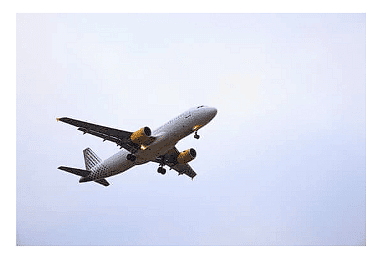 Airways
Airways
What is Communication?
Communication is the process of exchanging information, ideas, or messages between individuals or groups. It involves sending and receiving messages through various mediums such as speech, writing, gestures, or signals. Effective communication helps people understand each other, share thoughts and feelings, and coordinate actions.
Humans have been communicating since ancient times. Faster and reliable means of communication was developed in the nineteenth and twentieth centuries.

1. Postal service
India has a large postal network. It is called India Post. It is a widely used means of communication. There are nearly 1,55,000 post offices in our country. We send postcards, letters, greeting cards and parcels through the post office. For documents that need to be delivered urgently, the post office offers the facility of Speed Post.
2. Telephone
The telephone is the fastest means of communication today. It was invented by Alexander Graham Bell. People use landline phones and mobile phones for communication. Another popular device is the smartphone. It can be used as a computer and also to send/ make and receive messages and calls. Development of telephones over the years – first the landline, then the mobile phone and now the smartphone
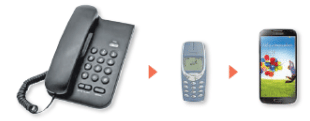 Development of telephones over the years – first the landline, then the mobile phone and now the smartphone
Development of telephones over the years – first the landline, then the mobile phone and now the smartphone
3. Intercom
The intercom is an electrical device that allows people in different floors of a building to speak to one another.
4. Fax
The fax is an instant means of communication. The fax machine is connected to a phone line. It is used to send a copy of a handwritten or printed material and photographs. The machine at the receiver’s end prints an exact copy of the document instantly.
5. Internet
The Internet is the latest means of communication. It is a global network of computers. We can seek information on any topic on the Internet. People can shop and even do banking through the Internet. We can transfer very large files to another person through the Internet. This is called Web transfer.
6. Email
The email or electronic mail is a popular means of communication. It delivers messages instantly. To send or receive an email, you must have a device such as a desktop computer, laptop, tablet or smartphone, an email account, and an Internet connection.
7. Radio
The radio was invented by Guglielmo Marconi. It is a source of education as well as entertainment. The radio has a vast audience and even reaches people living in remote areas.
8. Newspapers and magazines
Newspapers and magazines make us aware about the developments in different parts of our country and around the world. Today newspapers have digital versions or e-newspapers which people can read on their laptops, tablets and smartphones.
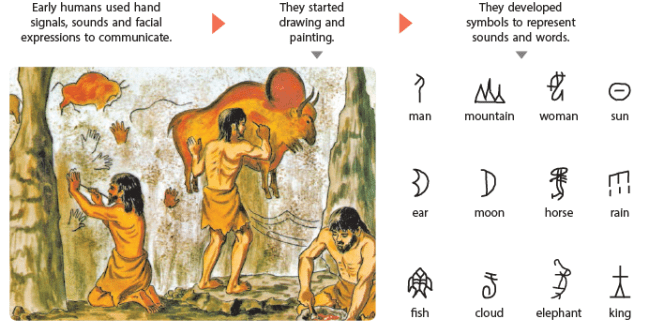 The Story of Communication
The Story of Communication
9. Television
John Logie Baird invented the television. This means of communication is more popular than the radio as it is an audio-visual medium. We can watch live and recorded programmes through this medium. Nowadays we can plug in pen drives to the television and play the movies we want to watch.
10. Cinema
Cinema is another means of communication that educates as well as entertains. Cinema also spreads social messages. New means of communication have become popular nowadays. These are called social networking services. These include Facebook, WhatsApp, Instagram and Twitter. We can communicate with our friends and relatives, send messages, photographs and videos through these networking services. In times of disasters or emergencies, social networking sites help us access information quickly. These services can be accessed either on smartphones and tablets or on laptops and personal computers.
|
33 videos|419 docs|50 tests
|
FAQs on Transport and Communication Class 5 Notes SST
| 1. How do vehicles help in transportation? |  |
| 2. What are the different modes of transportation? |  |
| 3. How is communication important in transportation? |  |
| 4. What are the benefits of using public transportation? |  |
| 5. How has technology improved transportation systems? |  |




















